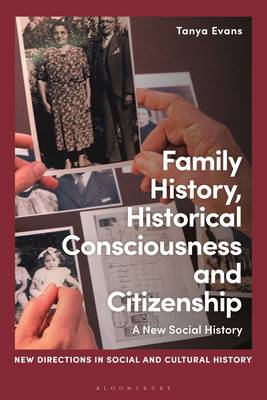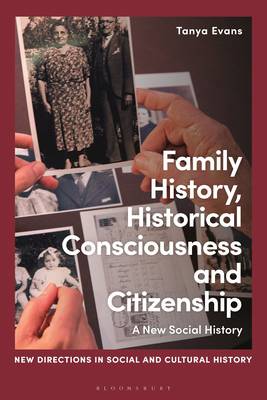
- Afhalen na 1 uur in een winkel met voorraad
- Gratis thuislevering in België vanaf € 30
- Ruim aanbod met 7 miljoen producten
- Afhalen na 1 uur in een winkel met voorraad
- Gratis thuislevering in België vanaf € 30
- Ruim aanbod met 7 miljoen producten
Zoeken
€ 69,45
+ 138 punten
Omschrijving
Family history is one of the most widely practiced forms of public history around the globe, especially in settler migrant nations like Australia and Canada. It empowers millions of researchers, linking the past to the present in powerful ways, transforming individuals' understandings of themselves and the world. This book examines the practice, meanings and impact of undertaking family history research for individuals and society more broadly.
In this ground-breaking new book, Tanya Evans shows how family history fosters inter-generational and cross-cultural, religious and ethnic knowledge, how it shapes historical empathy and consciousness and combats social exclusion, producing active citizens. Evans draws on her extensive research on family history, including survey data, oral history interviews and focus groups undertaken with family historians in Australia, England and Canada collected since 2016. Family History, Historical Consciousness and Citizenship reveals that family historians collect and analyse varied historical sources, including oral testimony, archival documents, pictures and objects of material culture. This book reveals how people are thinking historically outside academia, what historical skills they are using to produce historical knowledge, what knowledge is being produced and what impact that can have on them, their communities and scholars. The result is a necessary revival of the current perceptions of family history.Specificaties
Betrokkenen
- Auteur(s):
- Uitgeverij:
Inhoud
- Aantal bladzijden:
- 232
- Taal:
- Engels
- Reeks:
Eigenschappen
- Productcode (EAN):
- 9781350212077
- Verschijningsdatum:
- 21/09/2023
- Uitvoering:
- Paperback
- Formaat:
- Trade paperback (VS)
- Afmetingen:
- 156 mm x 234 mm
- Gewicht:
- 326 g

Alleen bij Standaard Boekhandel
+ 138 punten op je klantenkaart van Standaard Boekhandel
Beoordelingen
We publiceren alleen reviews die voldoen aan de voorwaarden voor reviews. Bekijk onze voorwaarden voor reviews.








